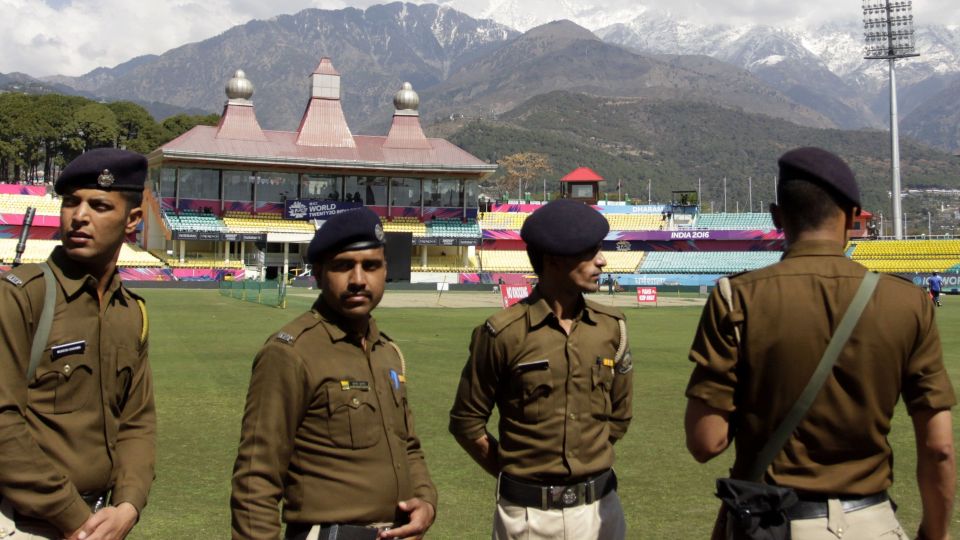Why Pakistan's teams are not travelling to India yet

The PCB's decision to defer the departure of its men's and women's teams to the World T20 in India pending "an assurance against specific threats to the Pakistan team from various political parties and groups during the tour", is the end result of months of dissatisfaction over handling of India-Pakistan cricket ties in India.
The PCB's announcement came shortly after the ICC had conveyed its decision to shift the March 19 World T20 fixture between India and Pakistan from Dharamsala to Kolkata. The change of venue was expected to bring the controversy surrounding the match to an end; the PCB, however, said its teams would not travel unless they were given high-level assurances from India, following an adverse report by its security team which visited Dharamsala and New Delhi over the weekend. The three-man committee which assessed the security situation in Dharamsala described it as 'unsatisfactory.'
The delay of the Pakistani teams' departures is not a trigger-happy response by the PCB to events of the last 24 hours. It has built up over several months, and reached tipping point when a scheduled meeting in October between the PCB chairman Shaharyar Khan and BCCI officials was cancelled due to anti-Pakistan protests in the BCCI's Mumbai office. These talks had been arranged to discuss the possibility of a long overdue bilateral series, to be hosted by the PCB. Workers from the Shiv Sena, a regional political party, stormed into the BCCI office in Mumbai, shouting anti-Pakistan slogans. It led to an embarrassing departure for the Pakistani delegation led by Shahryar.
The incident led to the PCB losing confidence in BCCI's handling of what is always a delicate situation as well as public support against pushing for matches versus India. It made headlines in Pakistan, with the PCB being severely criticised by political and cricketing quarters. Taking note of the fiasco, the Pakistan government asked the PCB to adopt caution in travelling to India and to do so only after a favourable prior advisory from the centre. In the case of the World T20, neither India's central government in New Delhi nor the Himachal Pradesh state government were able to give any clear assurances about the security that would be put into place for the Pakistan teams.
The state government of Himachal Pradesh in fact categorically refused to assure full-fledged security to the Pakistan team in Dharamsala, citing protests by ex-servicemen's families following incidents along the border. Following that, the Pakistan security delegation's visit did not appear to be taken seriously by the Indian government either.
While the ICC had indirectly assured the PCB of full security, it was not accepted because the only direct word from any government in India had come from the chief minister of Himachal Pradesh, about being unable to protect the team. When the delegation got to Dharamsala, no security plan was presented to them and they had to insist on a meeting with the deputy police commissioner of the region. There, it is learnt, the delegation found that the deputy commissioner did not have any special instructions from the home minister around security for the Pakistan team.
In Delhi, no attempts appeared to have been made by the BCCI to arrange meetings with senior authorities in the central government. The Pakistan delegation spent two days in the Indian capital but were unsuccessful in attempting to establish contact with the Home Ministry to set up a meeting with the Home Minister.
These incidents have further soured cricketing relations between the two countries. The PCB's last two major dealings with the BCCI have been unsatisfactory and led to increasing mistrust. Towards the end of 2015, there was a lack of clarity over playing the bilateral series, with the series abandoned and the BCCI not responding to communiqués from the PCB. India's silent ditching of the bilaterial series, the PCB say had cost them US$40m.
The list of Pakistan's disenchantment over cricketing relations with India stretches back beyond cricket over almost a year. The Shiv Sena's protest in the BCCI office was preceded by the cancellation of concerts in India by two Pakistani singers, Atif Aslam and Ghulam Ali, in April and October 2015. A launch of a book written by former Pakistan foreign minister Khurshid Mahmud Kasuri, also in October, was disrupted by right-wing activists attacking one of the organisers with black ink. After more Shiv Sena protests, which occurred during South Africa's tour of India, Pakistani umpire Aleem Dar and commentators Shoaib Akhtar and Wasim Akram did not travel to Mumbai for an ODI and left the country instead.
All of these events have led the PCB to be more stringent about its security demands on the BCCI and the ICC about the World T20. In such a scenario, if these demands are not met, there is every possibility the PCB may consider pulling both squads out of the tournament.
Umar Farooq is ESPNcricinfo's Pakistan correspondent. @kalson
